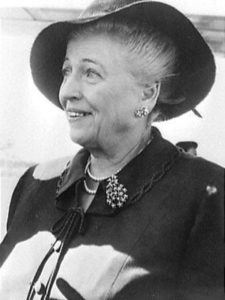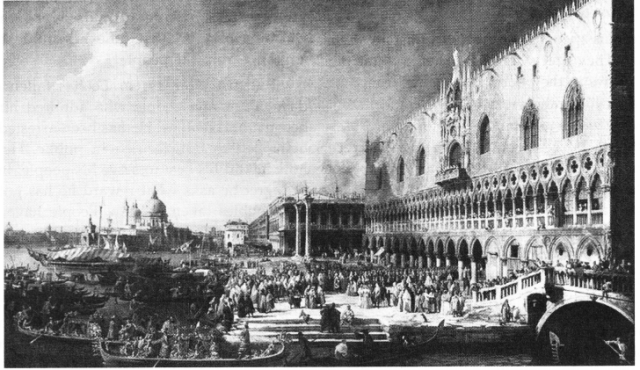We have decided to create the most comprehensive English Summary that will help students with learning and understanding.
The Letter Summary in English by Dhumaketu
The Letter Summary in English
Every day for the past five years, Coachman Ali walked slowly through the town. Now and then he drew his tom clothes tighter to shield his body from the cold and biting wind. At the post office, the old man went in quietly and squatted on the veranda.
Inside, the clerks separated the letters. Name after name rang out from within as the clerk read out the English addresses in the letters and flung them to the waiting postmen while the old man waited patiently outside. In the middle of this action, a jesting voice from inside called out Coachman Ali’s name.
The old man got up, raised his eyes to heaven in gratitude and stepping forward put his hands to the door. He called out eagerly to the clerk who had called out his name to enquire if there was a letter for him.
The clerk turned to the postmaster and said that Ali was a mad man who worried the post office employees by calling every day for letters that never came. Disappointed, the old man went back slowly to the bench on which he had been accustomed to.sit for five long years.
Ali had been a clever shikari but now, in his old age, he had given up hunting. His only child, Miriam had got married and gone off with her husband, a soldier, to his regiment in the Punjab, and for the last five years Ali had received no news of his daughter.
As a result of the parting, Ali had come to understand the meaning of love and separation and had therefore given up hunting. The post office had become his place of pilgrimage. He always sat in a particular seat in a particular comer of the building. People got to know his habit and they laughed at him. The postmen made fun of him. Even though there was no letter for him they would call out his name for the fun of seeing him jump up and come to the door. But with unlimited faith and,patience, he came every day, and went away empty-handed.
For several days Ali did not come to the post-office. Though no one had enough sympathy or understanding, they were all curious to know why Ali had not come. Finally, one day Ali came, breathing with difficulty, looking as if he were at death’s door. He asked for his Miriam’s letter and was rudely rebuked by the postmaster.
Ali came out very slowly, turning after every few steps to gaze at the post office, his eyes full of tears. He heard one of the clerks coming up behind him, and turned to him. He gave the clerk five golden guineas and told him to forward Miriam’s letter to him to his grave. That was the last anyone saw of Ali and no one bothered to check on him.
Then the postmaster’s daughter fell ill in another town and he sat anxiously waiting for news of her.
The post was brought in, and the letters piled on the table. Looking anxiously through the mail, he spotted a letter addressed to Ali. He picked up the letter thinking he’d give it to Ali himself when he came, for now the postmaster understood Ali’s heart and his very soul. After spending one night anxiously waiting for news of his daughter, his heart was full of sympathy for the poor old man who had spent his nights in the same suspense for the last five years.
At five, he heard Ali at the door and called him in. He handed the letter to the old man, bent double with age, who was standing outside.
One of his clerks, Lakshmi Das, the one to whom Ali had given the money, came to check who the postmaster was talking to. On learning that the postmaster was talking to Ali, he exclaimed that Ali had died three months ago.
The postmaster was bewildered. Miriam’s letter was still lying near the door, Ali’s image was still before his eyes. He listened to Lakshmi Das’s recital of the last interview, but he could still not doubt the reality of the knock on the door and the tears in Ali’s eyes.
That evening Lakshmi Das and the postmaster walked with slow steps to Ali’s grave and laid the letter on it.
The Letter Summary Questions and Answers
Question 1.
Answer the following questions by ticking the correct options:
a. Ali’s walking to the Post Office daily even in biting cold weather shows his
(i) courage.
(ii) optimism.
(iii) foolishness.
(iv) strength of will.
Answer:
(ii) optimism.
b. The Post Office is referred to as Ali’s “place of pilgrimage ” as he
(i) visited it daily.
(ii) came there to pray for a letter from his daughter.
(iii) went there with faith and hope.
(iv) believed God would bless him if he went there.
Answer:
(iii) went there with faith and hope.
c. The Post Master’s rudeness to Ali reveals his
(i) lack of empathy.
(ii) preoccupation with his work.
(iii) preconceived notions.
(iv) sensitivity.
Answer:
(i) lack of empathy.
d. Ali did not come to the Post Office for several days as
(i) he had given up hope.
(ii) he was upset by the Post Master’s rebuke.
(iii) he was unwell and not able to walk to the Post Office.
(iv) he was busy hunting.
Answer:
(iii) he was unwell and not able to walk to the Post Office.
e. “Tortured by doubt and remorse, he sat down in the glow of the charcoal sigri to wait. ’’ The Post Master was waiting for ‘
(i) a letter from Miriam.
(ii) a letter from his own daughter.
(iii) a letter from Ali.
(iv) Ali to deliver Miriam’s letter to him.
Answer:
(ii) a letter from his own daughter
Question 2.
Answer the following questions briefly.
a. Who was Ali? Where did he go daily?
Answer:
Ali was an old man who had once been a famous shikari. His only daughter Miriam had married a soldier and had gone away with her husband to his regiment in the Punjab.
Since the last five years Ali had no news of this daughter. He went every day to the post office to wait for a letter from her.
b. “Ali displays qualities of love and patience ”. Give evidence from the story to support the statement.
Answer:
The story ‘The Letter’ is built around Ali’s love for his daughter. Ali misses her deeply after she moves to Punjab with her husband. Though he was a great huntsman, he gives up hunting as he understood the pain of parting now. He went to the post office daily for five years in wait for a letter from his daughter. Every day he waited patiently for his Miriam’s letter despite jokes and rebukes from the post office employees.
c. How do you know Ali was a familiar figure at the post office?
Answer:
The post office is referred to as Ali’s place of pilgrimage. Ali always occupied a particular seat in a particular comer of the building every day. The postmen began to tease him. Even though there was no letter for him they would call out his name for the fun of seeing him jump up and come to the door.
d. Why did Ali give up hunting?
Answer:
Once Miriam went away with her husband, Ali understood the meaning of love and separation. He gave up hunting partridges as he could no longer enjoy the sportsman’s pleasure and laughter at the bewildered terror of the young partridges whose parents he had killed.
e. What impression do you form of the postmaster after reading the story ‘The Letter ’?
Answer:
At first the Postmaster is haughty and arrogant. He dismisses poor Ali as being mad.
One day when Ali inquires after his letter of him, the Postmaster very rudely rebukes him and tells him that the post office employees would not eat his letter. Being unimaginative, he is not able to understand another person’s pain till he suffers himself. But the Postmaster is ready to admit his mistake. As soon as he sees Ali’s daughter’s letter, he picks it up and decides to hand it over to Ali personally. He even accompanies Lakshmi Das to Ali’s grave to place the letter there, displaying his underlying compassionate nature.
f. The postmaster says to Ali, “What a pest you are, brother! ” Do you agree with the statement? Give reasons for your answer.
Answer:
No, Ali is not a pest. Though Ali goes daily to the post office, he waits patiently without disturbing or bothering anyone. Hope lures him to the door whenever the post office employees jokingly call out his name. When he realises they had been joking, he never rebukes them.
g. “Ali came out very slowly, turning after every few steps to gaze at the post office. His eyes were filled with tears of helplessness, for his patience was exhausted, even though he still hadfaith. ” Why were Ali’s eyes filled with tears of helplessness? What had exhausted his patience but not his faith?
Answer:
Ali’s eyes were filled with tears of helplessness as he had yet again received no letter from his daughter,
Miriam. The long wait, his approaching end, and the Postmaster’s sharp rebuke made tears of helplessness well up in his eyes. He had no energy left in him to come to the post office again, but he still had faith that Miriam would write, so he gave the clerk Lakshmi Das five gold golden guineas and told him to forward Miriam’s letter to him to his grave.
h. “Tortured by doubt and remorse, he sat down in the glow of the charcoal sigri to wait. ” Who is tortured by doubt and remorse? Why? What is he waiting for?
Answer:
The Postmaster is tortured by doubt and remorse. He now realises a father’s anxiety and worry. As his daughter is sick and he is awaiting news of her, he understands Ali’s anxiety. He realises he has been rude to Ali and is filled with regret at his behaviour. He sits down to wait for a letter from his daughter who is sick.



